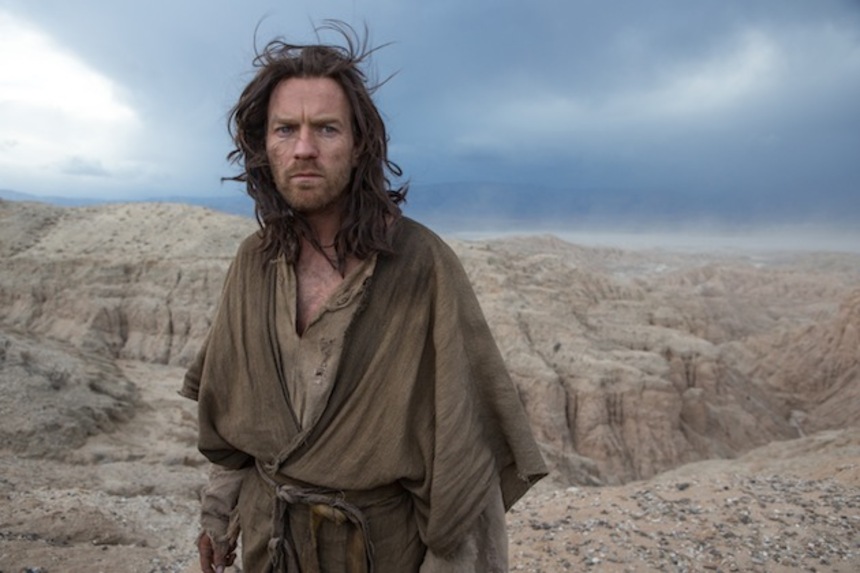Review: LAST DAYS IN THE DESERT, A Wandering Christ Parable

Director Rodrigo García's minimalist Christ-centered parable on fathers and sons pivots the holy man as everyman and observer. It's an approach that feels of merit: one that ultimately doesn't see earth-bound humanity and a more intangible sense of spirituality as separate entities, but of one and the same power, however far apart they may seem.
Nonetheless, this observational approach is a detriment to the film, with the end result feeling too removed from its own sense of faith, leaving with us merely an admirable, curious effort on the story of Jesus (referred to by his Hebrew/Aramic name Jeshua here).
Ewan McGregor is García's Jeshua, a perfect epitome of the image of Christ which adorns many American and European homes of the Christian and Catholic faith: The striking eyes and tousled locks, a modern, soft skinned Caucasian man that balances both a masculine and feminine grace and dignity. McGregor also portrays a demon who taunts Jeshua across his desert fast. A cheeky philosopher who finds the universe to be far too monotonous, the demonic spirit delights in causing even mild discomfort to the pensive holy man.
Seeking communication with the heavenly father he believes to come from, Jeshua's answer comes in the form of a family living in the desert. The Father (Ciarian Hinds) is building a house with his son (Tye Sheridan), so that the boy may live in peace long after his parents are gone. His ailing mother (Aylet Zurer) wishes only for the boy to make his own path in the world. Jeshua is welcomed into their camp as a laborer and eventually a friend, despite the father's weariness at the presence of a so-called holy man.
The film's drama is derived in the great divide found between the father and son, one that exists in both love and misunderstanding. García's film is a patriarchal parable through and through. The mother, a cripple, literally sitting on the sidelines, is the only one with some greater clarity, while the boy and his father struggle to even share a joke or interest during the workday. The boy quickly finds a confidant in the holy man, which causes more strife.
While each aspect of production is striking, from Emmanuel Lubezki's cinematography, to Danny Bensi & Saunder Jurriaans contemplative score, the film believes its story as far too preordained for us to deeply care. While fascinating to consider this, especially when the demon posits that God has made this world and told this story many times before, I felt entirely removed from the struggle between father(s) and son(s), both in body and spirit.
McGregor's portrayal as Jesus as a gentle and introverted man, haunted by dreams of drowning and wolves, his need to die seemingly more in line with the desire to connect with this heavenly father merely to prove he exists, grounds the film in the notion that Jesus was a human first and foremost. This feels right in theory, but it is that same introversion and contemplation that left me feeling more empty than ponderous or appreciative.
Perhaps García is presenting his work as an empty vessel for us to fill with our own notions. Such a proposition is an admirable and intriguing one, but I at least was unable to come up with anything other than dissatisfaction. Last Days In The Desert is by no means a poor film then, but one I probably won't be considering to be of note anytime soon.
This review was originally published in slightly different form during the 2015 Sundance Film Festival. Last Days In the Desert releases in Los Angeles, Austin, Nashville, Denver and Portland on April 13th with additional cities to follow.







